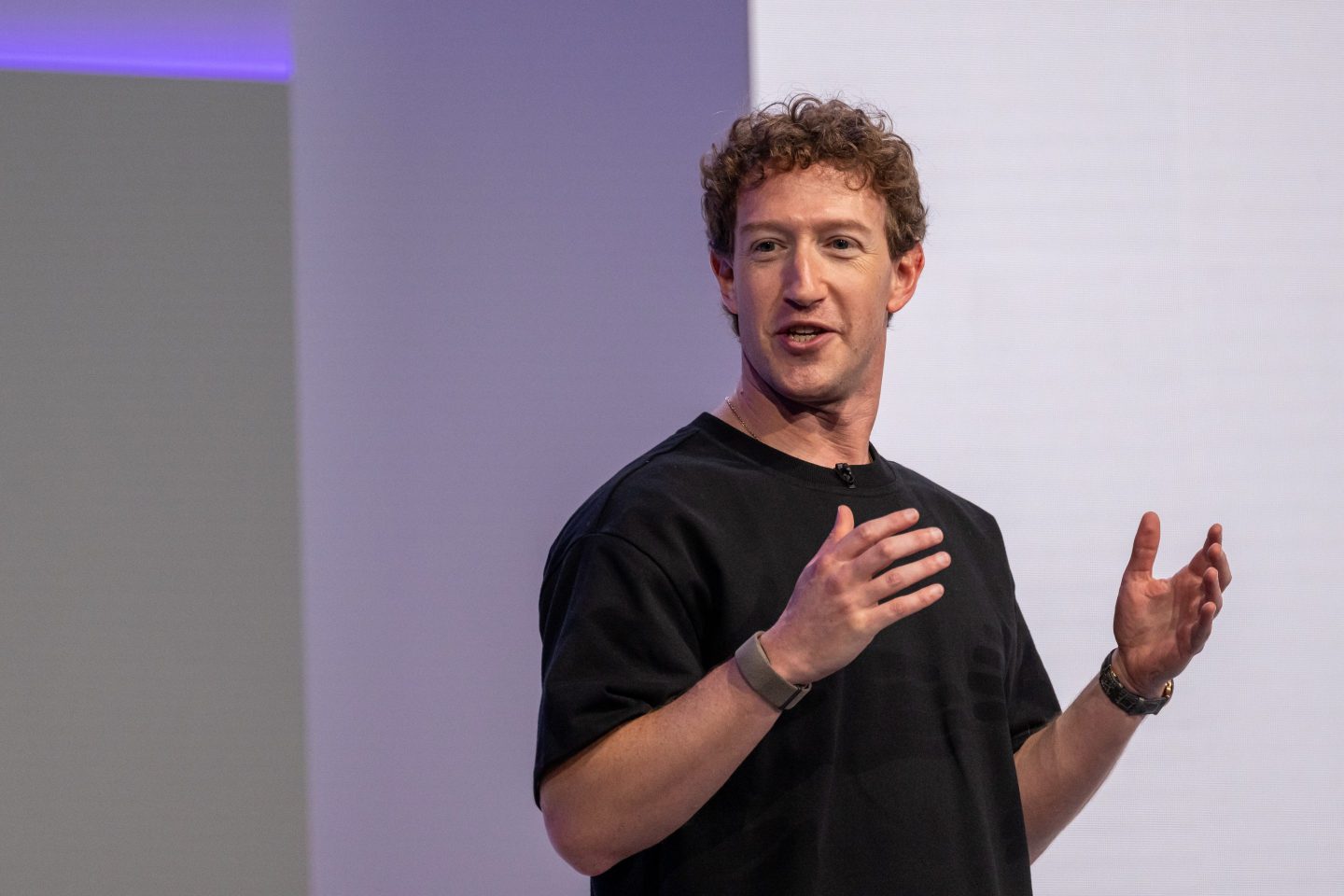Meta CEO Mark Zuckerberg said the structure of his core Superintelligence team looks very different from the rest of corporate America’s.
Instead of operating with byzantine org charts and layers of bureaucracy, the AI experts at TBD Lab, the core team at Meta Superintelligence Labs, has a “very flat” leadership structure.
It’s actually more of “a group science project,” Zuckerberg said on the State of AI with Rowan Cheung podcast. That also means no deadlines handed down from the C-suite, Zuckerberg added.
“It’s research—you don’t know how long the thing is going to take,” he said. “Everyone’s competitive. They all want to be at the frontier and doing leading work. Me setting a deadline for them isn’t going to help.”
Yet far from the levity that his “science project” description suggests, Meta’s future may hinge on the success or failure of the venture.
Zuckerberg said he’s been intimately involved with the team, including the group’s hiring and operations. That’s not without reason. The Meta boss sees AI as the future of the company, and as such has reportedly dangled multimillion-dollar contracts to attract the best AI researchers. Meta has already poached top talent from OpenAI, Google DeepMind, and Anthropic, much to the irritation of AI CEOs.
Meta’s TBD Lab reportedly has about 50 members, and Zuckerberg compared it to a boat where every member has to contribute.
“If someone isn’t pulling their weight on that, it has this huge negative effect, in the way that it doesn’t for a lot of other parts of the company,” he said Thursday.
To be sure, there has reportedly been some churn among the team and how it’s organized.
One researcher, Ethan Knight, resigned from the Superintelligence core team after less than a month, a Meta spokesperson confirmed to Fortune. Knight returned to former employer OpenAI.
Another two AI-focused employees, Avi Verma and Rishabh Agarwal, also recently left Meta, although a Meta spokesperson said the researchers never onboarded with the core TBD Lab. Agarwal joined Meta in April from Google DeepMind, and said in post on X of his departure “I felt the pull to take on a different kind of risk.”
Meanwhile, Meta indefinitely froze hiring for its AI division as it restructured its team, the Wall Street Journal reported in August. The restructure involved splitting AI workers into four teams: a core team made up of many of the newly hired experts called TBD Lab that is focused on Superintelligence, as well as teams for AI products, infrastructure, and longer-term projects.
Some research theorizes that putting too many superstars on a team can be counterproductive. A 2011 study analyzing Wall Street research teams in the peer-reviewed journal Organization Science found there is a tipping point at which too many high-performing team members led to marginally worse results.
Superintelligence Labs was announced in June after Meta poured a reported $14.3 billion into the startup led by Meta’s eventual chief AI officer, 28-year-old Scale AI founder Alexandr Wang. The group’s unapologetically ambitious mission is to help develop AI that surpasses human intelligence in every aspect. The group’s immediate commercial contribution is for now, though, less clear.
“Meta’s vision is to bring personal superintelligence to everyone. We believe in putting this power in people’s hands to direct it towards what they value in their own lives,” Zuckerberg wrote in a July note.













